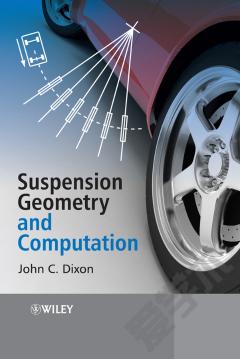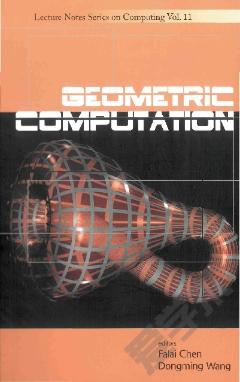Suspension Geometry and Computation
Revealing suspension geometry design methods in unique detail, John Dixon shows how suspension properties such as bump steer, roll steer, bump camber, compliance steer and roll centres are analysed and controlled by the professional engineer. He emphasizes the physical understanding of suspension parameters in three dimensions and methods of their calculation, using examples, programs and discussion of computational problems. The analytical and design approach taken is a combination of qualitative explanation, for physical understanding, with algebraic analysis of linear and non-linear coefficients, and detailed discussion of computer simulations and related programming methods. Includes a detailed and comprehensive history of suspension and steering system design, fully illustrated with a wealth of diagrams Explains suspension characteristics and suspension geometry coefficients, providing a unique and in-depth understanding of suspension design not found elsewhere. Describes how to obtain desired coefficients and the limitations of particular suspension types, with essential information for suspension designers, chassis technicians and anyone else with an interest in suspension characteristics and vehicle dynamics. Discusses the use of computers in suspension geometry analysis, with programming techniques and examples of suspension solution, including advanced discussion of three-dimensional computational geometry applied to suspension design. Explains in detail the direct and iterative solutions of suspension geometry.
{{comment.content}}








 京公网安备 11010802027623号
京公网安备 11010802027623号